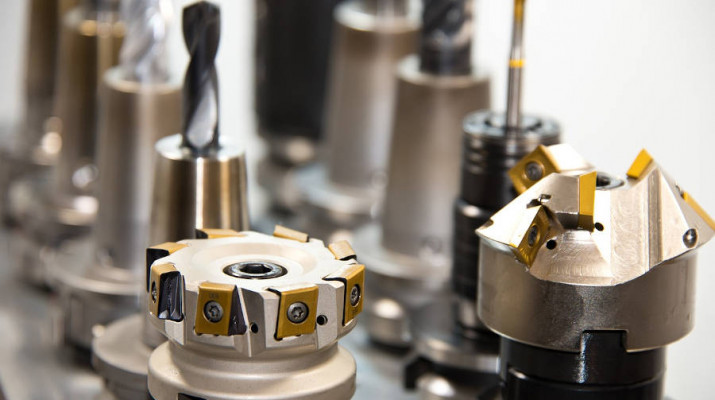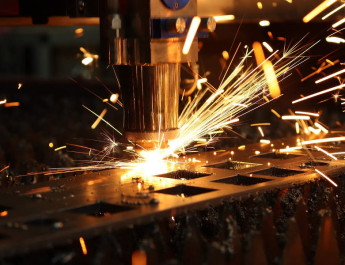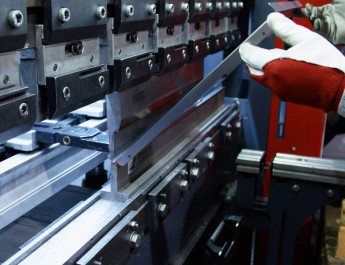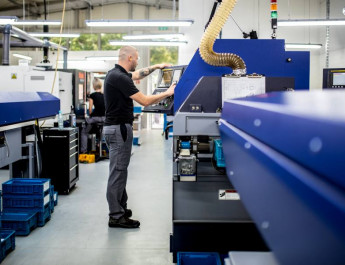Introduction
In the ever-evolving landscape of manufacturing, machining plants play a crucial role in producing precision-engineered components used across various industries. Machining services, including CNC turning, CNC milling, CNC drilling, and metal fabrication, have become the backbone of modern production processes. This article delves into the world of machining services and explores the advancements that have revolutionized the industry, enhancing efficiency, accuracy, and overall productivity.
1. The Rise of CNC Machining
1.1 Understanding CNC Technology
Computer Numerical Control (CNC) machining has been a game-changer for the manufacturing sector. The introduction of CNC machines brought automation and precision to machining processes, marking a significant departure from traditional manual machining methods.
CNC technology utilizes computer programming to control the movement and operation of machine tools. This level of automation reduces human intervention, leading to increased efficiency and reduced errors. CNC machines are capable of performing intricate operations, making them indispensable in modern machining plants.
1.2 CNC Turning: The Art of Rotation
CNC turning is a vital machining service that involves rotating a workpiece while a cutting tool removes material to create cylindrical parts with high precision. This process is ideal for producing components like shafts, pins, and bushings. The introduction of multi-axis CNC turning machines has further extended the capabilities of turning operations, allowing for complex geometries and reduced setup times.
1.3 CNC Milling: Sculpting with Precision
CNC milling involves the removal of material from a workpiece using rotating cutting tools. This process is suitable for creating a wide range of shapes, including slots, holes, and complex contours. Advancements in CNC milling have led to simultaneous multi-axis machining, enabling the production of intricate components with unparalleled precision.
1.4 CNC Drilling: Precision Perforation
CNC drilling is a specialized machining service used to create precise holes in workpieces. From simple holes to custom patterns, CNC drilling ensures accurate and consistent results, eliminating the need for manual drilling and minimizing the risk of errors.
2. Advancements in Machining Services
The machining industry has continuously evolved to meet the demands of modern manufacturing. Several key advancements have significantly impacted the efficiency and quality of machining services in machining plants.
2.1 High-Speed Machining (HSM)
High-Speed Machining (HSM) is a technique that leverages specialized CNC machines, cutting tools, and software to increase cutting speeds while maintaining or even improving precision. HSM reduces cycle times, expediting the production process and enhancing productivity in machining plants. Additionally, it leads to reduced tool wear, longer tool life, and improved surface finishes.
2.2 5-Axis and Multi-Axis Machining
The adoption of 5-axis and multi-axis CNC machines has transformed the machining industry. These advanced machines can move the workpiece along five or more axes simultaneously, allowing for complex operations without the need for multiple setups. This results in shorter production times, improved accuracy, and the ability to create intricate geometries that were previously unachievable.
2.3 Computer-Aided Manufacturing (CAM) Software
The integration of Computer-Aided Manufacturing (CAM) software with CNC machines has streamlined the entire production process. CAM software takes the computer-aided design (CAD) data and generates precise toolpaths for the CNC machine to follow. This automation minimizes programming errors, reduces setup times, and optimizes tool utilization, ultimately maximizing the efficiency of machining services.
2.4 Internet of Things (IoT) in Machining Plants
The rise of the Internet of Things (IoT) has not left the machining industry untouched. Machining plants are embracing IoT technologies to create “smart factories,” where machines, equipment, and devices are interconnected and share real-time data. This connectivity enables predictive maintenance, remote monitoring, and data-driven decision-making, leading to increased uptime, reduced downtime, and overall cost savings.
3. Metal Fabrication: Beyond Machining
While CNC turning, CNC milling, and CNC drilling are essential machining services, metal fabrication complements these processes to create a diverse range of end products. Metal fabrication involves the cutting, bending, welding, and assembling of metal components to produce complete structures or products.
3.1 Laser Cutting: Precision with a Beam
Laser cutting is a popular metal fabrication process that uses a high-powered laser to cut through various materials with incredible precision. CNC-controlled laser cutting machines ensure accurate cuts, making it a preferred method for creating intricate shapes and designs.
3.2 CNC Bending: Shaping with Accuracy
CNC bending is used to form metal sheets and plates into desired shapes. By employing CNC press brakes, metal fabricators can achieve precise bends, ensuring uniformity and consistency in the final product.
3.3 Welding and Assembly: The Final Touch
Welding is a fundamental process in metal fabrication, where individual components are joined together to create the final assembly. The use of CNC welding machines enhances the accuracy of welds, resulting in structurally sound and aesthetically pleasing products.
4. Challenges and Future Outlook
As machining services continue to evolve, the industry faces certain challenges and must adapt to emerging trends to stay ahead of the curve.
4.1 Skilled Workforce
With the increasing adoption of advanced CNC machines and automation, the demand for skilled CNC operators and programmers has risen. Training and developing a highly skilled workforce will be essential to leverage the full potential of modern machining technologies.
4.2 Sustainable Manufacturing
As sustainability becomes a focal point in various industries, machining plants must adopt environmentally friendly practices. This includes energy-efficient machining processes, recycling of materials, and responsible waste management.
4.3 Integration of Artificial Intelligence (AI)
The integration of Artificial Intelligence (AI) in machining services is on the horizon. AI-powered systems can optimize machining parameters, predict maintenance needs, and even perform real-time adjustments to ensure consistent quality and efficiency.
4.4 Additive Manufacturing (3D Printing)
While traditional machining remains crucial, additive manufacturing, or 3D printing, is gradually gaining traction in various applications. The combination of both subtractive and additive manufacturing processes can unlock new possibilities and further enhance the capabilities of machining plants.
Conclusion
The evolution of machining services in machining plants has been nothing short of remarkable. From the advent of CNC technology to the rise of smart factories, the industry has continuously pushed the boundaries of efficiency, accuracy, and productivity. As the demand for high-quality precision components continues to grow, machining plants must embrace advancements, invest in modern technologies, and foster a skilled workforce to remain competitive in the dynamic world of manufacturing.
In the face of emerging challenges and opportunities, the future of machining services is promising. With ongoing research, development, and innovation, the industry is set to create even more efficient, sustainable, and precise manufacturing processes for generations to come.




